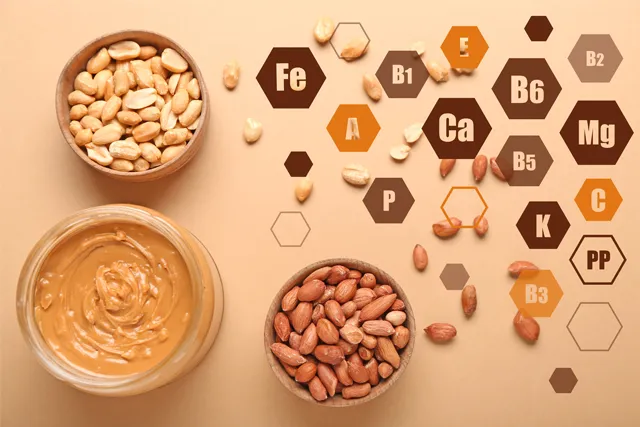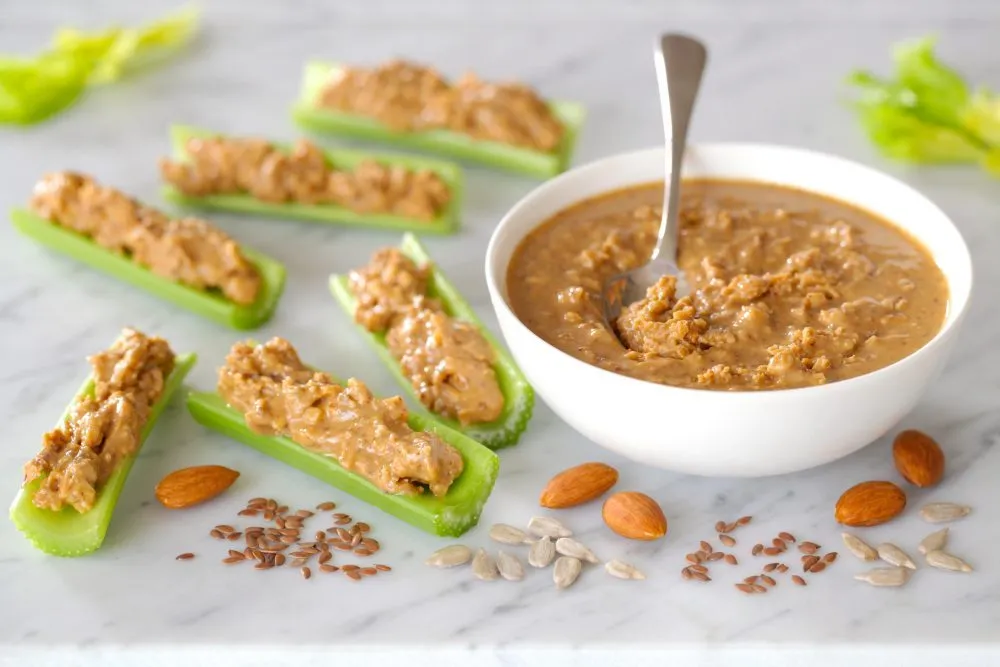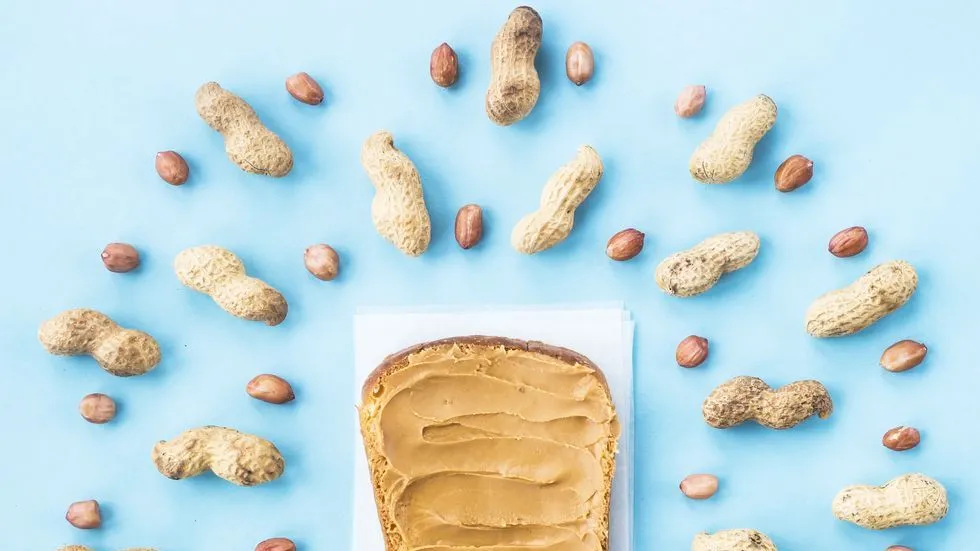
Peanut Butter Myths And Facts : Everything You Need To Know
So you love peanut butter, huh? Who doesn't? That creamy, nutty goodness is a staple in lunches and snacks for both kids and adults. But how much do you really know about your favorite peanutty treat? Turns out there are a lot of myths and misconceptions about peanut butter floating around.
Before you make your next PB&J or grab a spoon to dig into that jar, read on to learn the truth about some of the most common peanut butter myths. We'll uncover some little-known facts about peanuts and how peanut butter is made. You may be surprised by what you discover! By the time you're done reading, you'll be a peanut butter expert and the go-to person in your friend group for all peanut-related questions.
Myths about Peanut Butter
-- Peanut Butter is Fattening
Peanut butter is delicious, but is it really that fattening? The short answer is: not necessarily. Peanut butter can absolutely be part of a healthy diet. Here are some myths and facts about peanut butter and weight gain:
Myth: Peanut butter is loaded with calories.
Fact: Two tablespoons of peanut butter have about 190 calories. While that's not insignificant, peanut butter is packed with nutrition like healthy fats, protein, and fiber that keep you feeling full and satisfied. The key is portion control and moderation.
Myth: Peanut butter will make you gain weight.
Fact: Peanut butter alone does not cause weight gain. Weight gain results from consuming more calories than you burn over time. Peanut butter can absolutely fit into a balanced calorie-controlled diet. In fact, peanut butter may even help with weight loss when consumed in moderation as part of a reduced-calorie diet.
Myth: You should avoid peanut butter if you're trying to lose weight.
Fact: Peanut butter can support weight loss when consumed in proper portions as part of a balanced diet. Peanut butter contains healthy fats and protein that provide energy and help keep you feeling full, which may help reduce appetite and calorie intake. The fiber in peanut butter also aids digestion and keeps you feeling satisfied.
The bottom line is peanut butter can be part of a healthy diet. Watch your portion sizes, choose natural peanut butter with no added sugar, and enjoy it as part of a balanced nutritious diet. Your waistline will thank you!
-- Peanut Butter Causes Acne
Peanut butter is a pantry staple for many, but some myths about this popular spread persist. One myth is that peanut butter causes or worsens acne. This is not true. While peanuts are high in oils and fats, there is no evidence that eating peanut butter can directly prompt acne breakouts or make them worse.
Acne is caused by a combination of factors, including hormones, genetics, and excess oil production by hair follicles in the skin. Peanut butter does not impact any of these underlying causes. Some people may find that certain foods seem to trigger their acne or make it worse, but peanut butter is usually not one of them.
For those concerned about the fat content in peanut butter affecting skin health, rest assured that fat in the diet does not translate directly to fat on the face or body. Consuming fats, proteins and nutrients within a balanced diet will not cause you to break out. However, eating excess calories from any source could potentially contribute to acne by causing changes in hormone levels. As with anything, peanut butter should be enjoyed in moderation.
The oils in peanut butter are healthy fats that provide various benefits when consumed as part of a balanced diet. Peanut butter contains monounsaturated fats, polyunsaturated fats, and a small amount of saturated fat. These fats are an important source of energy and help with the absorption of fat-soluble vitamins like Vitamin E.
While peanut butter is not likely to cause or worsen acne for most people, some individuals may find that it triggers inflammation or a dietary sensitivity. The only way to know how it impacts your skin is to experiment by eliminating it from your diet for a few weeks to see if there are any changes to your acne. For many acne sufferers, the root causes lie elsewhere, so don't assume peanut butter is the culprit without cause.
In summary, there is no evidence to suggest that peanut butter causes or aggravates acne for the general population. As with many myths about diet and skin health, this appears to be an unfounded belief not supported by research or medical advice. Unless you have a peanut allergy or sensitivity, you can enjoy your peanut butter without worry about it prompting a breakout. Moderation and balance are key to any part of a healthy diet.
Facts about Peanut Butter
-- Peanut Butter Can Be Part of a Healthy Diet
Peanut butter gets a bad rap, but the truth is, it can absolutely be part of a healthy diet. Peanut butter is loaded with plant-based protein. Just two tablespoons contain 8 grams of protein, which is pretty impressive for such a small serving. Peanut butter also provides fiber, iron, magnesium, zinc, and antioxidants.
-- Peanut butter is heart healthy
Peanut butter contains unsaturated fats, which can help lower cholesterol and reduce the risk of heart disease when consumed in moderation. Peanut butter also contains resveratrol, a compound that may help prevent damage to blood vessels and reduce inflammation in the body.
-- Peanut butter gives you energy
Peanut butter is a great source of niacin, which helps convert food into energy. It also contains manganese, which is important for bone health and metabolism. Just a little peanut butter can provide you with protein and healthy fats to give you an energy boost.
-- Crunchy Peanut Butter Is Healthier Than Creamy Peanut Butter
Many people assume crunchy peanut butter must be the healthier option over creamy. After all, crunchy has chunks of peanuts, so it must have more nuts, right? Wrong. This is a myth. Both crunchy and creamy peanut butter can be part of a balanced diet.
-- Crunchy and Creamy Peanut Butter Can Both Be Part of a Balanced Diet
Peanut butter comes in two varieties: crunchy and creamy. While crunchy peanut butter contains chopped peanuts for texture, creamy peanut butter has a smooth consistency. Both can absolutely be part of a balanced diet.
Crunchy or creamy, most peanut butters are made from ground peanuts and a little added oil and salt. Peanut butter is a good source of plant-based protein and healthy fats. Two tablespoons contain 8 grams of protein and 16 grams of fat. The majority of fats in peanut butter are unsaturated fats, the “good” fats that can help lower cholesterol.
Peanut butter also contains many vitamins and minerals like:
- B vitamins
- Vitamin E
- Magnesium
- Zinc
Some people think creamy peanut butter is more nutritious because the peanuts are ground finer. But nutritionally, crunchy and creamy peanut butter are nearly the same. The only difference is texture. So choose the variety you enjoy!
Crunchy peanut butter does tend to have slightly more calories due to the chopped peanuts. But the difference is minor. Two tablespoons of crunchy peanut butter has about 190 calories, while creamy has about 180 calories.
For the most nutritious option, choose an all-natural peanut butter with no added sugar and limited added salt. Peanut butters with added sugar typically have 3 grams of added sugar per 2 tablespoon serving. To avoid excess sugar, choose a peanut butter with no sugar in the ingredients list or less than 2 grams of added sugar.
In the end, crunchy or creamy, peanut butter can absolutely be part of a balanced diet. The nutrients in peanut butter make it a healthy option whether you prefer it smooth or with some texture. Spread it on whole grain toast, use it in place of mayonnaise on a sandwich, or just grab a spoon—either way, you’ll be getting protein, healthy fats and key vitamins and minerals.
Choose Natural Peanut Butter with No Added Sugar
Look for natural peanut butter with no added sugar. Ingredients should just be peanuts and maybe a little salt. Some commercial peanut butters have a lot of added sugar, hydrogenated oils, and other unhealthy additives. As with anything, moderation is key. Enjoy your peanut butter in moderation as part of a balanced diet.
Peanut butter can absolutely be part of a healthy diet. When you choose natural peanut butter with no added sugar and watch your portion sizes, peanut butter can be nutritious and satisfying. Spread it on whole grain bread, add it to smoothies, or just enjoy it by the spoonful.
-- Ingredients
The ingredients in crunchy and creamy peanut butter are nearly identical. Both typically contain roasted peanuts, peanut oil, salt, and sometimes sugar. The only difference is that crunchy peanut butter has peanut chunks in it, while creamy has been blended smooth. Nutritionally, they offer the same amounts of protein, fat, and nutrients.
-- Nutrition
A two-tablespoon serving of either crunchy or creamy peanut butter has about 190 calories, 16 grams of fat, and 8 grams of protein. The fat in peanut butter is mostly unsaturated fat, the healthy type of fat. Peanut butter also provides vitamin E, niacin, magnesium, and zinc. As long as you choose peanut butter with no added sugar and oils, both crunchy and creamy can absolutely be part of a healthy diet.
The healthiest option is natural peanut butter, whether crunchy or creamy, with just peanuts and maybe a bit of salt. Avoid peanut butters with added sugar, oils, and trans fats. As for the crunchy vs creamy debate, that comes down to personal preference. Both can be a perfect snack or addition to your favorite smoothie. Ultimately, the choice is up to you and what texture you enjoy!
In summary, don’t get caught up in the myth that one peanut butter is inherently healthier. Crunchy and creamy peanut butter can both be nutritious choices. The most important thing is to choose a natural peanut butter with no added sugar or oils and enjoy whichever texture you prefer.
Conclusion
So there you have it, the truth about peanut butter myths and facts. Turns out peanut butter isn't just for kids or as fattening as its reputation suggests. Peanut butter can absolutely be part of a healthy diet for people of all ages when consumed in moderation.
The next time you're in the mood for something creamy and delicious, don't feel guilty reaching for the peanut butter jar. Spread it on bread or apples, use it in your cooking and baking, or just eat it straight from the spoon. Peanut butter is packed with nutrition and nostalgic childhood memories. No need to feel nutty for loving it!


